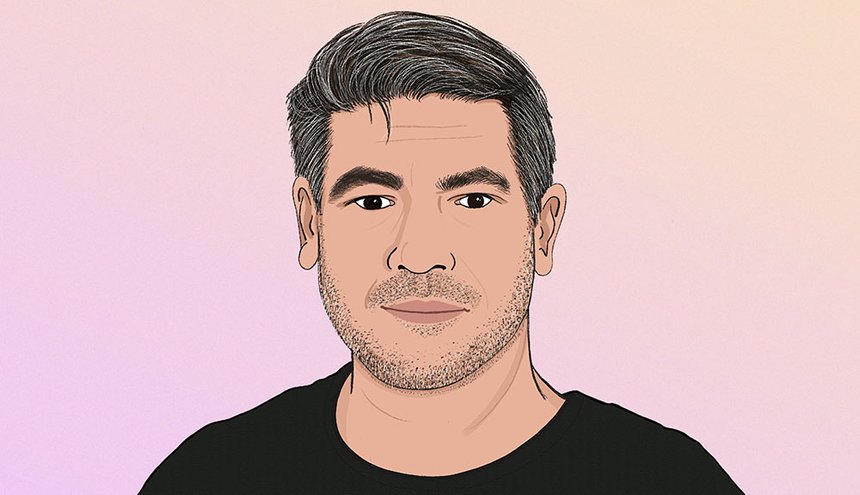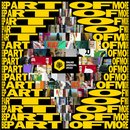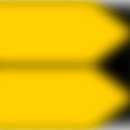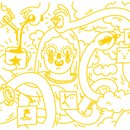D&AD Leadership Interviews – Luiz Sanches of AlmapBBDO
Chairman and Chief Creative Officer tells us about building his career towards leadership and shepherding his team through the pandemic

Luiz Sanches decided that he wanted to work in advertising as a boy, and by the time he turned seventeen he had turned that dream into a reality. He subsequently juggled work with his education until finding a professional home at AlmapBBDO.
A creative tour de force, he has won multiple awards and pencils since joining AlmapBBDO as an Art Director, 27 years ago. In 2002, he became a Creative Director and since 2013, he has been a partner and Chief Creative Officer. He now has seats on the board of BBDO, One Club and Google’s creative board. He’s also racked up an impressive 63 D&AD Pencils over the course of his three-decades-long career.
2020 brought challenges to us all but for some more than others, and Brazil is still dealing with the pandemic, operating under restrictions and a limited number of vaccines. In the face of this, AlmapBBDO, led by Sanches, has produced yet more noteworthy work, including a beautiful series of films for WhatsApp.
We asked Sanches about his journey to success, the challenges of leadership at this difficult time, and what he’s learned from his experience he can share with others.
Take the plunge and make goals a reality
Sanches was just seventeen when he got his first job in advertising, meaning he had to work from the ground up.
“When I learned about advertising everything was so magic and inspiring — The art direction, the ideas and all the things that surround advertising were so beautiful to me. It is like being faced with a puzzle you solve with creativity,” said Sanches over Zoom.
Sanches got his first job in the creative industires at a newspaper, working as an art assistant helping to create boards which had to be made by hand. “The job was my first contact with creative work and a chance to learn what you are able to do using creativity,” he explains.
This first taste of the work made him want to work alongside the best to learn as much as he could. “I just wanted to learn from the best and I started looking for opportunities to do so.”
Having an idea is one thing, selling an idea is another
Shortly after Sanches settled in under Marcello Serpa at AlmapBBDO, Serpa suggested that Sanches do an MBA in Berlin in order to learn more about the business side of advertising. “I had already won many Lions, D&AD Pencils and awards for my creative work, but it was now that I learned that everyone could have an idea but not everyone can sell an idea,” he reflects.
“After I got the MBA, I could have a conversation with a client where I am not this creative guy trying to take advantage of this businessman — I saw that my ideas could have a positive impact on his business, and we could be partners. I got back to Brazil and Marcello made me a partner.”
Find the opportunities in the challenges
“I had been a partner at AlmapBBDO for about eight or nine years when Marcello came up to me and said it was time for him to leave and retire.” Running the agency was now his responsibility, Serpa was an idol in Brazil so this felt like a great challenge but the challenges didn’t stop there.
Not long afterwards Volkswagen opened up their pitching in Brazil. This felt like a test of Sanches’ leadership. “It was extremely tough but we won the pitch but then the moment we felt safe, we had to pitch again, this time a global pitch in which VW reduced their international agencies from fifty to five,” he explains. “It became a benchmark for the agency as we upscaled to taking care of the entire region of Latin America.”
What appeared to be a series of personal and professional challenges secured a huge opportunity.
In a crisis, be agile and adaptable
In the midst of global societal shutdown, resulting in changing needs and desires beyond anything this generation has encountered, the role of brands and advertisers changed, and for a while it was unclear what the new position would be. Decisions had to be made on the fly as the landscape was changing daily.
“The pandemic just came out of the blue, no one was expecting it to be as far reaching as it was,” says Sanches. “We [brands and advertisers] had to communicate. At first it was a message of solidarity and then brands started making donations of sanitiser or masks, whatever was needed. This came with instruction and in some cases orientation with brands almost taking on the role of governments in some cases.”
The prospect of reduced resources did not phase Sanches as, being based in São Paulo, he is used to working with less than businesses operating in North America or Europe. “One of the conversations I had with my team when this started was, we are Brazilians, and we do a lot with so little because we don’t have the resources that everyone else has,” he explains.
This included coordinating remote shoots for WhatsApp and introducing Havaianas to the possibilities of cross brand collaboration. (Which went on to win the 2021 D&AD Collaborative award)
Forced change doesn’t have to be a negative
When the pandemic first hit, many people the world over had to live their lives predominantly confined to their homes and had to work with whatever resources they had to hand. Working remotely as a creative team poses obvious challenges and sometimes tasks usually completed as a team had to be done by people working alone.
“It surprised me that when people had to act as individuals, that the results were amazing,” says Sanches. “The work the agency has done during the pandemic is much better than the work we have done two years before the pandemic, it’s funny how you can be surprised at the way things turn out.”
Building on trust is important when you need to take the lead with clients
With everything thrown into disarray companies have to make important decisions quickly putting the bond of trust between creative and client to the test.“If I could say that something good came from the pandemic it would be that events made existing relationships stronger because at some point during the pandemic you knew exactly what people were going through,” says Sanches.
By using data garnered through existing projects the agency was able to gain insight into changing consumer habits in real time but actioning these learnings required trust. “All our existing data became irrelevant, and clients realised the need for creativity to read the new data that was coming in and see the new opportunities because a lot of people didn’t immediately realise that the wind had changed. It’s our role to let them know.”
Build a new and inclusive office culture
The pandemic has been dealt with differently all over the world meaning that in some countries lockdowns are easing Brazil is still very much in stage one of the pandemic. With the prospect of reduced spending, consumer relationships become even more important than ever.
Many people are still working remotely and office culture as we know it is not likely to return for some time but Sanches is still looking to the future.“I am longing to have meetings face to face again,” says Sanches. “It would be great to let people use the space we have as an agency so people could go into work as not everyone has the infrastructure to work at home.”
Interview by Amah-Rose Abrams
For more insights on how the way we work has changed, Asana surveyed over 13,000 global workers to explore how issues brought to bear over the past year have affected creatives and other knowledge workers. The findings and solutions are designed to help organisations thrive in a hybrid-working future. Download Asana’s Anatomy of Work Index 2021 here.
In partnership with

Sign up now



